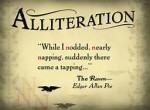 My friend Pat Laster http://www.patlaster.com/ recently commented about found poems. In a nutshell, found poems are those little surprises you unearth while reading books, articles, essays, or other works. The words, or just a phrase or two, leap at you as being particularly crafted or full of imagery or feeling, or could be rife with rhythm and rhyme. Friends have shown me poems they ‘found’ in obituaries, and similarly, cemeteries – where they discovered beauty in the sentiments.
My friend Pat Laster http://www.patlaster.com/ recently commented about found poems. In a nutshell, found poems are those little surprises you unearth while reading books, articles, essays, or other works. The words, or just a phrase or two, leap at you as being particularly crafted or full of imagery or feeling, or could be rife with rhythm and rhyme. Friends have shown me poems they ‘found’ in obituaries, and similarly, cemeteries – where they discovered beauty in the sentiments.
One definition says found poetry is created by taking words, phrases, and sometimes whole passages from other sources and making changes in spacing and/or lines, or by altering the text by additions and/or deletions. If you alter it too much, isn’t the whole idea of it being a found poem diluted? It’s just an idea that inspired a poem.
Whether happy accidents or purposely placed, they appeal to every writer. Sometimes we sigh and silently wish WE had been able to express the thoughts so eloquently. Sometimes, whether we consider ourselves writers of prose or poetry, we are compelled to continue the thought with words of our own. We expand it in an essay or a different story. We devise a poem of our own – stimulated by the other, but in our own words.
Found poetry is often the result of an experienced writer using poetic devices. A way of coining a phrase or two that makes the  most of the words used. You see, whether we write prose, poetry, or a smattering of both, we use those subtle things that enhance a readers’ sensibilities. It is especially delightful when you find a newspaper or magazine article that makes use of them. Often those writers concentrate on the cold, hard facts and there isn’t much there that grabs your imagination.
most of the words used. You see, whether we write prose, poetry, or a smattering of both, we use those subtle things that enhance a readers’ sensibilities. It is especially delightful when you find a newspaper or magazine article that makes use of them. Often those writers concentrate on the cold, hard facts and there isn’t much there that grabs your imagination.
Metaphors, Similes; Consonance, Assonance, and Alliteration; Onomatopoeia, Hyperbole, Personification – all these things and more draw the reader with a pleasantness of sound, a heightening of their senses, and memory prompts. Skillfully placed in a scene of a book or an essay, they can create a memorable passage (and, a found poem!). But avoid overkill. Using too many can have the opposite effect and be a distraction. There are many links to explain these things, so stay tuned. This spring I’ll be on a poetry binge and will comment on many of them.
Personification – all these things and more draw the reader with a pleasantness of sound, a heightening of their senses, and memory prompts. Skillfully placed in a scene of a book or an essay, they can create a memorable passage (and, a found poem!). But avoid overkill. Using too many can have the opposite effect and be a distraction. There are many links to explain these things, so stay tuned. This spring I’ll be on a poetry binge and will comment on many of them.
Create an exercise for yourself. Pick up a newspaper or the magazine you just received and find a poem. It’s there, I promise. Pick up one of your own pieces and search through it. I’ll bet there’s a poem in there you didn’t even know you wrote!






I enjoyed your perspective and know that I do enjoy “found poems.” Now, I’ll look for them everywhere. Thank you.
Thank you Jane!
I enjoyed reading your explanation as well as the Found Poems on Pat’s web site. Good post!
Always glad to know you’re liking them, DJ!